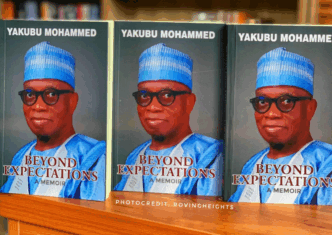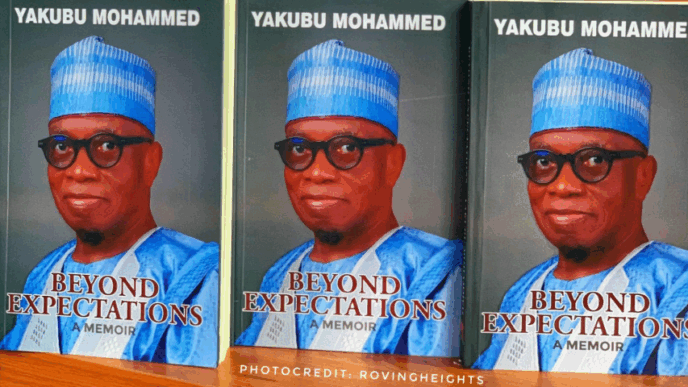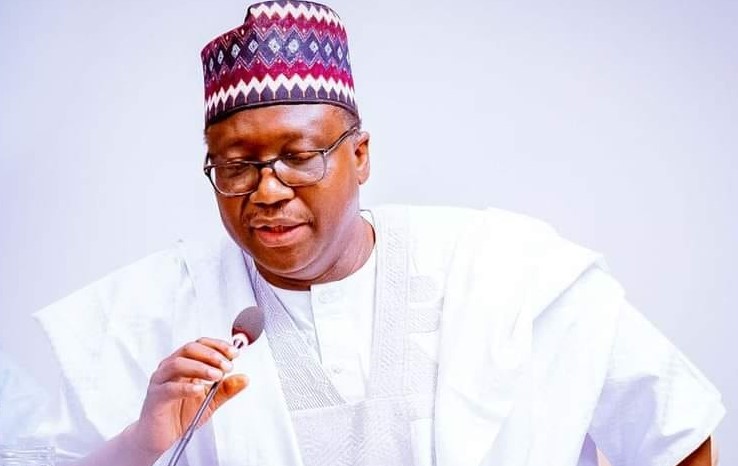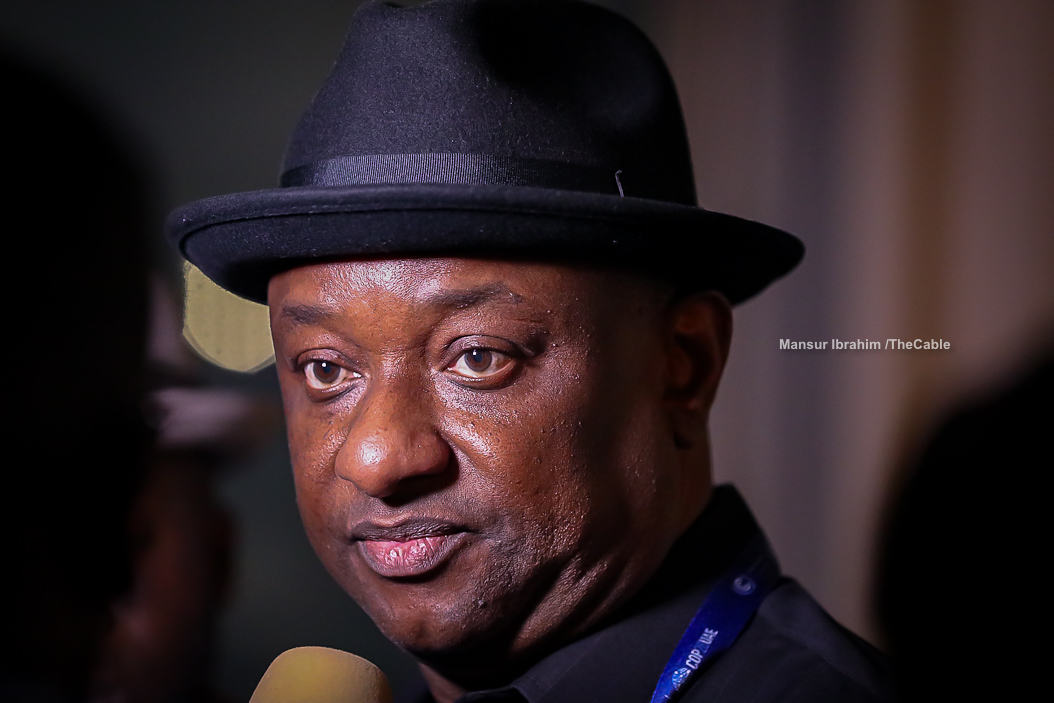Sometime in the last quarter of 2016 or thereabouts, I noticed that a website that had been the subject of controversial social media debates on budgeting and fiscal (mis)appropriation a year earlier was “down”. The person at the centre of the debate was someone I considered one of the fecund minds the nation has thrown up in public office since 1999—his flaws notwithstanding. And so, I was determined to get to the root of the matter: why would a multi-million naira website “go blank”?
There and then, I placed a call to a young man who was the face of a leading tech-driven civic organisation, and he picked up the call, his voice a tad raspy, as though he was jetlagged and his sleep had just been disrupted. But he listened, still, as I told him what I had just noticed and sought to confirm a few data-related concerns. Upon listening to the fiscal accountability aspect of my Turenchi, his voice came alive, pronto, and he promised to get back to me. Although the story idea never came to fruition, through that encounter and multiple such encounters afterwards, I was impressed by the genuineness of his conviction about fiscal transparency as a pathway to the development of our motherland.
In the years that followed, I have had reasons to work on issues at the intersection of fiscal policies, budgeting, public sector reforms, accountability, and civic advocacy, and in many ways, I have found his brainchild quite phenomenal.
Enter Seun Onigbinde, CEO of BudgIT.
Advertisement
But first, some context.
In 2008, Pulitzer-winning journalist Dele Olojede founded what satirist Olatunji Dare described as arguably “the boldest and most ambitious experiment in Nigerian journalism” since the Guardian was founded in 1983: NEXT newspaper. Although the NEXT experiment collapsed after a run of nearly three years, the underlying philosophy didn’t— or so it seemed, as the inimitable Dapo Olorunyomi did emphasise when Premium Times was founded in 2011. And for many of us apostles of the Olojede-Olorunyomi school of thought, the driving force was built around an old hypothesis that Olojede himself captured quite brilliantly in an interview about a decade ago:
“Perhaps the biggest obstacle to progress in Nigeria is the abiding cynicism of the people. They’ve been disappointed and hard done by for so long that they no longer believe. So they turn to the churches and the mosques and to prophets of doom and bearers of unfounded good tidings – and their condition worsens, because they are not facing up to the very hard and necessary facts of daily life, which they have to engage with in order to improve.”
Advertisement
In other words, the expectation is that the Nigerian people would take action and make progress when they are confronted with the FACTS of their (mis)governance realities, the premise upon which rests the idea of evidential, fearless journalism that was the forte of NEXT newspaper and others shaped in its image.
Two decades since the NEXT experiment failed, I am not quite certain about the potency of Olojede’s hypothesis (or model, if you will). Olojede himself made a tangential reference to that flawed hypothesis in an interview in 2017:
“The…country was in such bad shape that I thought that using the skills that I knew I had, which was my only serious area of strength, I could make sure that the country was very clear about its condition, that there was no room for self-deception, that people couldn’t say: ‘oh if only we’d known, we would have acted differently’.
“So we are going to show you what’s going on and we hope that by arming the citizen with factual incontrovertible information, they would take it and use it to act for the betterment of their own country. Now, that was a big assumption that turned out to be false!”
Advertisement
Now, the seeming failure of that hypothesis concerning citizens’ actions notwithstanding, what’s plausible an argument is that Nigerian journalism—warts and all—has been able to move the developmental conversation beyond the domains of dearth of information.
“All models are wrong, but some are useful,” wrote British statistician George Box in a 1976 paper in reference to limitations of models, arguing that while no model is ever completely accurate, some models can still provide valuable insights if applied in certain ways.
In a sense, if “Nigerian journalism” (from the adversarial to the citizen-led, from the policy-focused to the data-driven) has delivered information to the people’s doorsteps far better than it did in 2008, we may have seen a near-commensurate replication of that, too, in data decentralisation, especially as regards governance at the subnational level. If true, that’s one huge gap the young, brilliant minds at BudgIT—led by Seun Onigbinde and others—have filled.
As the co-founder of BudgIT, a civic organisation that uses data, design, and technology to make government budgets and spending accessible to citizens, Onigbinde has played a pioneering role in reshaping the way Nigerians engage with governance and data, and his journey reflects innovation and a deep commitment to fiscal transparency.
Advertisement
To be sure, some quick confession: his avant-garde trajectory in open data campaigns aside, as an “Ibadan boy”, there is a default reason for me to find Seun Onigbinde’s work fascinating: he was born in Osogbo and raised in Ibadan, my beloved hometown. And in the early years when we became virtual “friends”, his stories connected with me deeply in the historical and cultural realms as much as they did in areas of civic advocacy. I enjoyed the pieces he wrote about his works at the intersections of data analysis and financial modelling from his days in the bank as much as I enjoyed his musings about Queen of Apostle Primary School and Loyola College, Ibadan, where he was transferred to after his family couldn’t afford a private school in Lagos.
In the early years of Nigeria’s fourth democratic experiment, details of government financial dealings were largely by-products of hush-hush bureaucratic (“office”) gossip and occasional leaks in the media. There was very little to no transparency in terms of procurement and budgeting, especially at the subnationals. That reality, that opacity, it would appear, planted the seed of BudgIT: an idea designed to break down Nigeria’s budget documents into easily digestible infographics, charts, and digital platforms that citizens could use to demand accountability.
Advertisement
The experiment would blossom into one of the most audacious moves in data transparency and civic advocacy in Nigeria. Since its inception, BudgIT has grown into one of Africa’s leading civic tech organisations, with operations beyond Nigeria, including Sierra Leone and Ghana. Through platforms like Tracka, it enables communities to monitor government projects, ensuring that budget allocations translate into real, visible development. This bottom-up approach to governance empowers citizens, especially in rural areas, to hold their representatives accountable.
Through Onigbinde, I have met some incredible (young) minds this nation is fortunate to be blessed with, pushing the frontiers of accountability and civic advocacy to new heights: From the calm, level-headed Gabriel Okeowo, to the multi-talented Ayo Ladipo, through to my closest (ex-)ally at BudgIT, the incredibly energetic Iyanuoluwa Bolarinwa (whose passion and patriotism I admire so well, even though I have had reasons to disagree with some of his methodologies in private conversations). These great minds have helped in no small way to deepen data journalism practice, as I realised when I was involved in the Atupa Financial Journalism Fellowship and story contest (in which I emerged the overall winner), an initiative supported by the Lagos Consulate/US Embassy in 2020 or so.
Advertisement
As a journalist, I have also benefitted from BudgIT’s advocacy efforts and struggle for data transparency, relying on some of their platforms for data that help blow the lid off the faces of kleptomaniacs pilfering our common patrimony, contractors killing the dreams of our future generation, and “dealers” masquerading as leaders in starched Agbada sewed with funds (mis)appropriated for constituency projects.
Onigbinde isn’t without his flaws, like myself and every human, and I have had to disagree with a few of his decisions too, sotto voce – even as I respect those decisions. And I do that with the realisation that, ultimately, humans aren’t a summation of our (presumed) differences. What’s more, life itself and the way we live it and the decisions that shape our journeys are all about perspectives, like the proverbial Yoruba talking drum, gán-gan. In any case, the fundamental principle, driving force, and unifying theme remain endearing: data decentralisation for civic advocacy, as a pathway to economic justice, social accountability, and good governance.
Advertisement
The last time we met at the World Bank headquarters in Washington, D.C, earlier in the year, I was awed, yet again, by his work ethic. I was moving about in search of a venue at HQ2 or so, in the company of another colleague, and there he was, punching away at his laptop. We exchanged pleasantries and he joked, in his characteristic humble style, about seeing my “presence everywhere” – and I added, sotto voce, “like MTN” – and we laughed. Of course, the next time I would see him at the meetings, he was also in the open space of one of the floors, head buried in his laptop, punching away with reckless abandon—a testament to how incredibly hardworking he is.
By demystifying public finance, Onigbinde and the BudgIT team have not only bridged the gap between citizens and government but have also laid the foundation for a more transparent and accountable society – where data isn’t just an abstract phenomenon, but a weapon for the enthronement of democratic governance.
Outside BudgIT, he has also been a model of positive change and youth empowerment/positioning for global opportunities in our dear state, Oyo, and especially in his community, Ogbomoso. Last year, he launched the Oluseun Onigbinde Resource Centre to foster positive change and expose the children of the have-nots to opportunities. For a state with an urgent need to develop human capital, there isn’t a better way to give back and inspire hope in young people.
As he clocks 40 this month, here’s wishing him all the best of the years ahead, and given the immense fecundity of Onigbinde’s imagination, may “the best tunes (be) played on the oldest fiddles,” as American essayist Ralph Emerson didn’t quite say.
Happy birthday, Ègbón.
Oladeinde is the business, energy & economy editor of Premium Times
Views expressed by contributors are strictly personal and not of TheCable.










